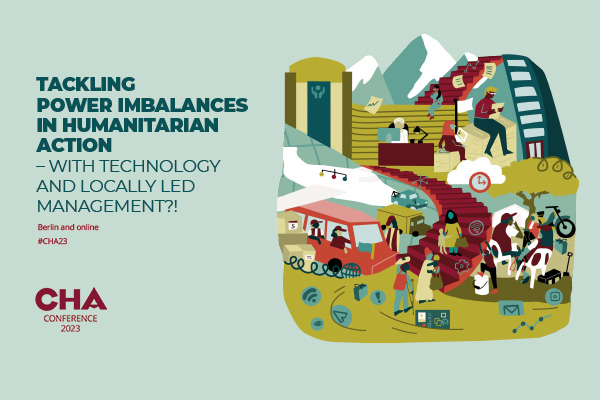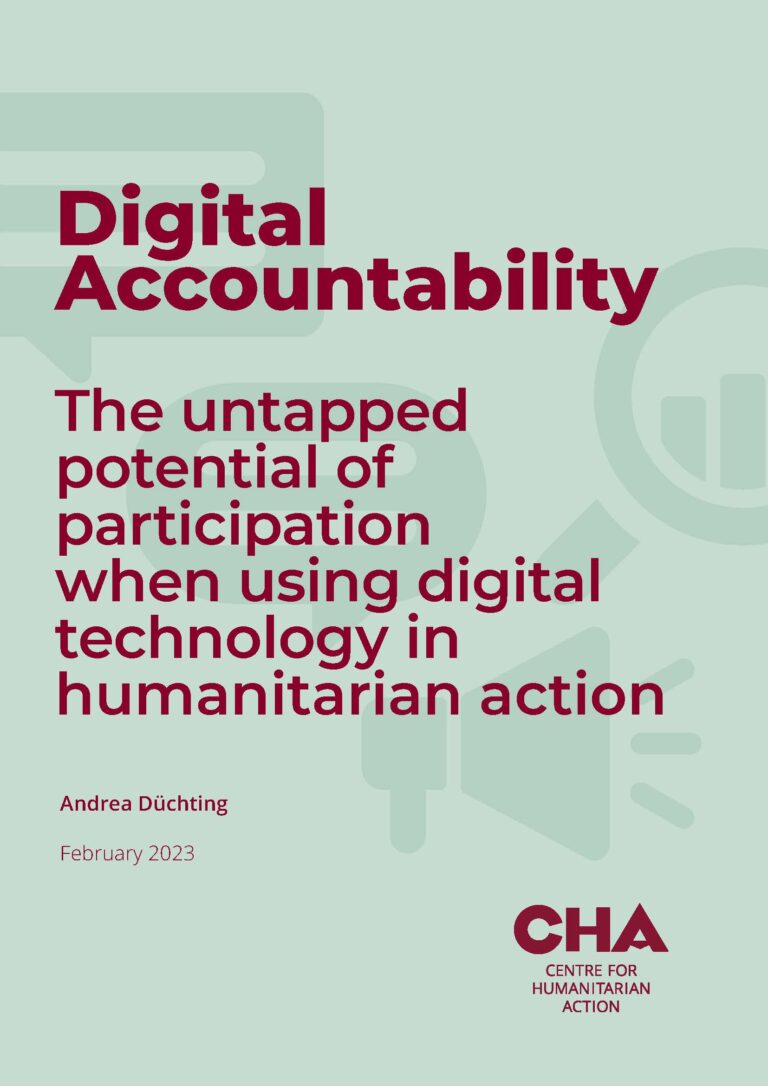| Date: | 12.07.2023 |
| Time: | 13:00 - 14:30 |
| Location: | online |
New tech, old problems — can digital accountability in cash and voucher assistance help us get the basics right?
The humanitarian system has been undergoing a digital transformation, predominantly driven by the desire to make the sector more efficient, effective, and accountable. Digital tools, and the large amounts of data they produce aim at streamlining complex processes and ultimately reaching more people with less funds. Despite aspirations to strengthen people’s informed decision-making in humanitarian action, affected people are rarely involved in discussions on technology-related choices. And for those most vulnerable with low levels of (digital) literacy, such conversations might even seem entirely out of reach.
At the same time, the recently updated IASC Operational Guidance highlights the need for responsibly managing people’s personal and non-personal data in a safe, ethical, and effective way. The Guidance takes a strong risk perspective by focusing on ‘doing no digital harm’ while maximising the benefits of data and striving for collective action across the humanitarian system. It further advocates for taking a principled approach to increase transparency and strengthen accountability to affected populations. The Guidance, however, leaves room for interpretation on how this should be achieved. This is not surprising considering that the humanitarian sector continues to struggle to properly inform people of the most basic aspects of cash programming, never mind making space for people to properly engage with and impact the aid they receive. For example, in Nigeria, 66% of Cash and Voucher Assistance (CVA) recipients in the BAY states do not know how long they will receive their cash or voucher assistance for. In Somalia, only 1 in 4 understand how CVA is targeted.
Before we replicate offline issues in an online environment, it’s time to start getting the basics right. How should people affected by crisis meaningfully understand the use of their data in a way that allows them to hold organisations to account? In what ways can technology help the sector be more accountable, and what risks does this entail? How can or should we speak of technology and accountability when, in some parts of the world, the vast majority of people affected by crisis remain offline while, in other parts, affected people request to be virtually connected?
The discussion about digital accountability is very country-dependent and context driven. Still, it is long overdue.
Manu Samuel Seth (Jireh Doo Foundation),
Serhii Shmyhol (Right to Protection),
Hannah Miles (Ground Truth Solutions),
Rory Crew (CALP Network),
Andrea Düchting (CHA)
and others wanted to discuss, learn from daily realities and start getting the basics right.
Format: Zoom Webinar, hosted by CHA in cooperation with Ground Truth Solutions and CALP Network
Language: English
Please find the recording of the event below or directly on our Youtube Channel.






